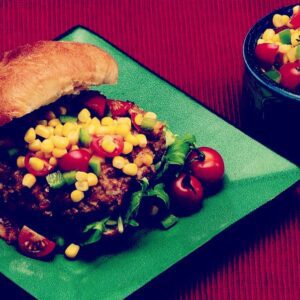Eat Well
Go Green for Earth Day!
Apr 20, 2016
By Kristin Kessler, Registered Dietitian
Home to more than seven billion people, three trillion trees, and more animals than many of us can count (the ant population alone is 10,000 trillion!), Mother Earth is a pretty populated place. And since we only have just one planet, it’s extra important to take care of it. Earth Day—celebrated every year on April 22—began 46 years ago to increase conversation on environmental issues, like fossil fuels, renewable resources and overall sustainability. This Friday, in addition to conserving electricity and recycling, take your Earth Day celebrations into the kitchen with our simple tips for sustainable eating!
Embrace the “All Produce is Beautiful” movement

Every year, six billion pounds of fruits and veggies in the U.S. go unharvested or unsold—not because they’re spoiled, but because they’re considered “ugly.” Deformed, wonky, crooked, or long-necked, just because this food doesn’t look like your typical produce doesn’t mean it’s not as tasty and nutritious! Honor homely veggies by combining them with Libby’s products in big casserole or soup dishes, like this recipe for Minestrone Soup. No one will ever know you chose the “ugly” produce over the “pretty” produce!
They’re called leftovers, not trash!

Food waste is no throwaway topic. Every year, approximately 2.9 trillion pounds of food—about one third of all food produced worldwide—gets tossed. Learn to love (and actually use) your leftovers in creative ways by incorporating them into salads, sandwiches and wraps. Extra helpings from last night’s roasted chicken can be tomorrow’s lunch with these Spicy Chicken Lettuce Wraps.
Skip the meat (for a day)

Take a tip from the meatless Monday playbook and go vegetarian on this Earth Day. Going meatless can help reduce water usage, greenhouse gases and fuel dependence. To put it into perspective, approximately 1,850 gallons of water are needed to produce a single pound of beef, while a mere 39 gallons of water are needed to produce a pound of vegetables. Choose vegetarian sources of protein (think: lentils and beans) to improve both your health and the health of the planet. The next time you’re hankering for a burger, try this vegetarian recipe for Mexican Salsa Veggie Burgers instead. It’s filled with beans and spice and everything nice.